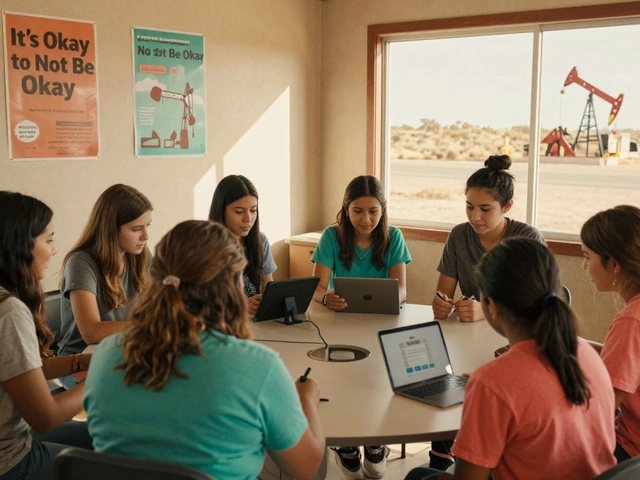Understanding and Overcoming Challenges in Volunteer Work
Volunteering is often seen as a noble endeavor, a chance to give back and effect real change in the world. Yet, like any worthwhile pursuit, it comes with its challenges. Many volunteers step into their roles armed with enthusiasm and a willingness to help, only to find out that the path can be strewn with unexpected difficulties. While each experience is unique, there are common obstacles that many volunteers face along the way.
One of the hardest aspects to navigate can be the emotional toll. Working in high-pressure or emotionally charged environments can lead to burnout, making it crucial to build a sense of emotional resilience. This isn't a sign of weakness but rather an opportunity for growth and learning.
Communication barriers are another difficulty volunteers often encounter, especially in diverse communities or international settings. Bridging these gaps requires patience, cultural sensitivity, and sometimes a bit of creativity. It's important to understand that progress may come slowly, but persistence pays off.
Equally vital is the balancing act between volunteer work and other life commitments. Setting realistic expectations and maintaining open lines of communication with coordinators can help manage this. By preparing for these challenges and adopting a positive mindset, volunteers can turn potential setbacks into opportunities for learning and growth.
- Emotional Resilience in Volunteering
- Communication Challenges and Solutions
- Balancing Commitments and Expectations
- Cultural Sensitivity and Adaptation
Emotional Resilience in Volunteering
Volunteering can be as emotionally rewarding as it is challenging. It's not unusual for volunteers to encounter situations that tug at the heartstrings and test their emotional resilience. This emotional strain is often dubbed as one of the toughest aspects of volunteer work. When you repeatedly confront poverty, illness, or other adverse conditions, it's easy to become emotionally fatigued. This feeling, often referred to as compassion fatigue, is akin to burning out, except it specifically affects those who work in caring professions and roles, including volunteers.
Building emotional resilience is crucial to prevent this kind of burnout. It's about learning to manage stress effectively and recovering from difficult experiences without becoming overwhelmed. It often starts with acknowledging your limits and being okay with them, a lesson many find hard to accept when they are eager to make a difference. Assessing your emotional stamina and not overcommitting, even when the need is great, can prevent you from losing your spark and motivation.
Practical ways to nurture emotional resilience include maintaining a healthy work-life balance. Engage in activities that replenish your spirit and provide relaxation. Often, simple activities like a walk in nature, meditation, or journaling can work wonders for restoring mental health. Peer support is also invaluable. Connecting with fellow volunteers to share experiences, challenges, and coping strategies can provide both reassurance and relief. Many find sharing the burden makes it more bearable.
"Volunteering is at the very core of being a human. No one has made it through life without someone's help." — Heather French Henry
Developing emotional resilience also involves cultivating a mindset of realistic optimism. You might not be able to change the world overnight, but each small action contributes to larger changes. Recognizing the meaningful impact of even the smallest efforts can sustain motivation and resilience. Additionally, learning to segment your experiences, separating work life from personal life, aids in maintaining mental clarity. Remember, the aim is balance; to give effectively, you must also refuel yourself.
In conclusion, fostering emotional resilience not only protects volunteers from burnout but enhances their ability to make a sustained impact. Volunteers who care for themselves are better equipped to care for others. By developing strategies to manage stress and emotions, volunteers can ensure that their contributions are sustainable and fulfilling.

Communication Challenges and Solutions
Communication is the backbone of any successful volunteer project, and tackling its challenges is crucial for achieving meaningful impact. One of the most persistent challenges volunteers face is the language barrier. This can often arise not only in international settings but even within diverse local communities. Understanding and addressing these barriers requires volunteers to broaden their linguistic and cultural horizons. This might entail taking language classes, learning key phrases, or using translation apps to bridge gaps. But language is only one facet of communication. Different cultural norms and expectations can also cause misunderstandings. For example, what is considered polite or friendly in one culture can be inadvertently offensive in another.
Addressing these communication hurdles involves a strategy that emphasizes patience and a willingness to learn from mistakes. Giving oneself permission to falter and then grow is part of the process. Volunteers can benefit from training sessions or workshops that focus on cross-cultural communication skills. Such sessions often include role-playing exercises to practice real-life scenarios. These kinds of preparatory activities can greatly diminish the stress when faced with an authentic confrontation. It's also crucial to foster a climate of openness, where individuals feel safe sharing their thoughts and feelings. Creating an environment where people can speak up and suggest improvements without fear of judgment is vital for easing communication woes.
Volunteers must also remain adaptable and ready to modify their communication strategies as they interact with various individuals and communities. Many programs might utilize technology to ease communication challenges. For instance, a simple WhatsApp group can coordinate meeting times and share relevant information promptly. Community notice boards either online or in person can also work wonders. It is imperative to ensure that everyone has equal access to these resources for them to be effective. According to a study by the World Economic Forum, 65% of volunteer organizers now depend on digital communication tools to streamline operations and minimize confusion.
"Effective communication is 20% what you know and 80% how you feel about what you know." – Jim Rohn
For volunteers striving to overcome communication challenges, empathy plays a significant role. Having empathy means being aware of, understanding, and respecting different values, beliefs, and cultures. It allows for smoother interactions and diminishes potential tension arising from miscommunication. One strategy to enhance empathy could involve engaging with community members outside of the volunteer setting. Sharing casual meals or participating in local events can lead to stronger bonds and an improved understanding of community norms. Moreover, maintaining consistency in communication, like holding regular check-in meetings, helps in keeping everyone on the same page. The importance of routine cannot be overstated, as it encourages transparency and unity among volunteers and community members alike.

Balancing Commitments and Expectations
Managing multiple responsibilities is something almost everyone faces, but for volunteers who juggle their passion for helping with personal and professional lives, it can become particularly challenging. When stepping into volunteer work, it's essential to remember that this commitment deserves attention and respect. Yet, ensuring you're not overextended is vital for maintaining both your effectiveness as a volunteer and your personal well-being. Many volunteers find themselves caught in a cycle of wanting to do more while feeling stretched too thin to be truly effective—this is a common dilemma.
One way to handle this challenge is by setting clear priorities from the outset. It might sound simple, but many find it difficult to articulate what truly matters in their volunteer efforts. Consider creating a list of goals that are important to your volunteer mission. Are you hoping to gain new skills, meet new people, or contribute to a cause you believe in? By identifying these goals, you can weigh them against your existing responsibilities and make decisions that align with what you value most. This practice can help in maintaining balance and ensuring that your commitments do not become burdens.
Understanding Expectations
It’s not just about understanding your own expectations but also those set by the organization you volunteer for. Misalignment here can lead to unnecessary frustration. Start by having an open conversation with your volunteer coordinator or team leader. Inquire about what is expected in terms of time and effort, and equally voice any potential limitations you might have. This dialogue paves the way for realistic planning and ensures you’re not committing more than you can deliver. According to a survey conducted by Idealist, more than 40% of volunteers reported frustration due to poorly defined roles and expectations.The key to successful stress management lies in communication. Organizations thrive when their volunteers are informed and invested, as stated by Michael Babineaux, a renowned volunteer management expert.
Time Management Tips
Another piece of the puzzle is managing time effectively. One practical approach is using tools like calendars or apps designed for task management. By setting aside dedicated time slots for your volunteer work, you not only ensure you’re meeting your commitments but also leave room for personal time. Consider these tips for efficient time management:- Prioritize tasks based on urgency and importance.
- Break larger projects into manageable tasks.
- Regularly review and adjust your schedule as needed.
Lastly, remember that it's okay to step back if you feel things are getting overwhelming. Temporary breaks can offer a fresh perspective and prevent burnout. A balanced approach means being kind to yourself and acknowledging that while your contributions as a volunteer are valuable, maintaining a sustainable pace is crucial.

Cultural Sensitivity and Adaptation
Volunteering in diverse settings requires a keen sense of cultural sensitivity and an ability to adapt. This skill is not merely about etiquette or politeness; it's about understanding and appreciating the intricate tapestries of tradition, values, and social norms that make each community unique. Whether you're volunteering locally in a diverse urban neighborhood or traveling to a remote village halfway around the world, the ability to navigate these cultural differences is paramount.
Cultural adaptation involves more than just learning a few key phrases in another language or understanding basic customs. It's about deeply immersing yourself in the environment, keenly observing, and being open to learning from those around you. Listening becomes as important, if not more, as speaking, as it allows us to understand unspoken cultural nuances and non-verbal cues. This patience can earn trust and foster deeper connections, which is essential for effective volunteer work.
The World Bank notes that respecting local cultures and traditions significantly enhances community development outcomes. According to their research, projects with cultural considerations are 30% more likely to meet their objectives than those without. Understanding these cultural dynamics helps volunteers work more effectively and collaboratively within the communities they aim to serve.
Dr. Roman Krznaric, a cultural thinker, once said, "Empathy is the art of stepping imaginatively into the shoes of another person, understanding their feelings and perspectives, and using that understanding to guide your actions." This approach is particularly crucial in volunteering, where building empathy bridges cultural divides and enriches engagement.
Practical steps can aid in developing cultural sensitivity. Start by researching the community before arrival. This can include reading about its history, primary societal challenges, and celebratory events. Engaging with locals can further enrich this knowledge. Another effective method is to participate passively at first; observe community interactions and be present at social gatherings to learn firsthand about local behaviors and practices.
Besides, understanding involves recognizing and setting aside personal biases, which can cloud judgment and impede connection. It is also essential to acknowledge that each culture operates on its timeline and rhythm; what seems like a slow response may, in fact, be the community’s norm. Patience and genuine interest often dissolve walls of misconception and foster mutual respect.
Technological tools can also assist volunteers. Language apps, virtual culture tours, and online workshops offer insights into cultural norms and practices. Volunteering provides a rare opportunity to not only impact lives but also expand personal horizons through cultural adaptation. Every volunteer can become a cultural ambassador, advocating for understanding and unity, regardless of the setting. This dedication not only improves one's volunteering experience but also leaves a lasting positive impact.







